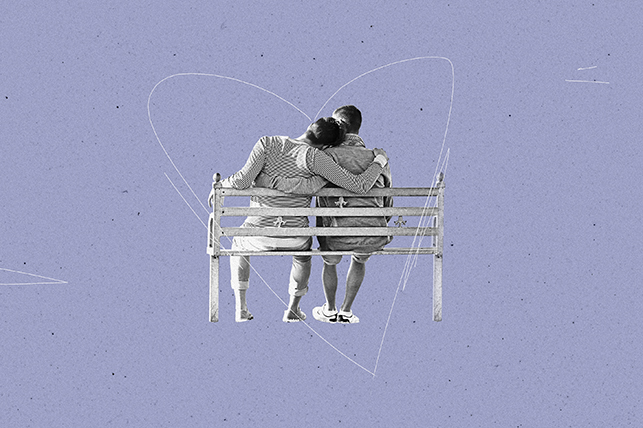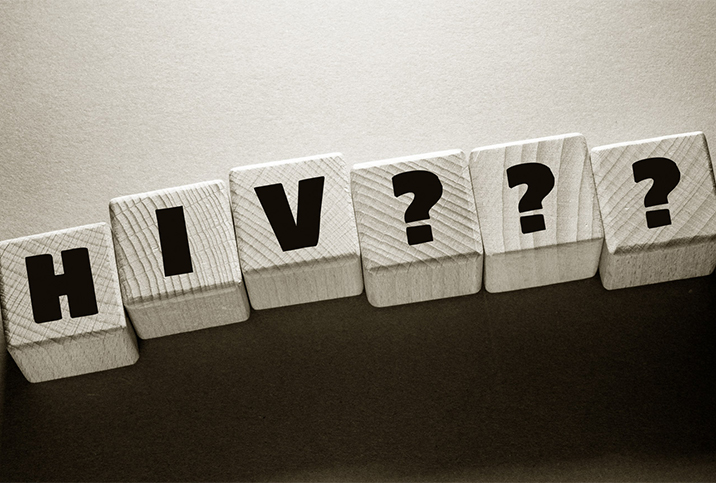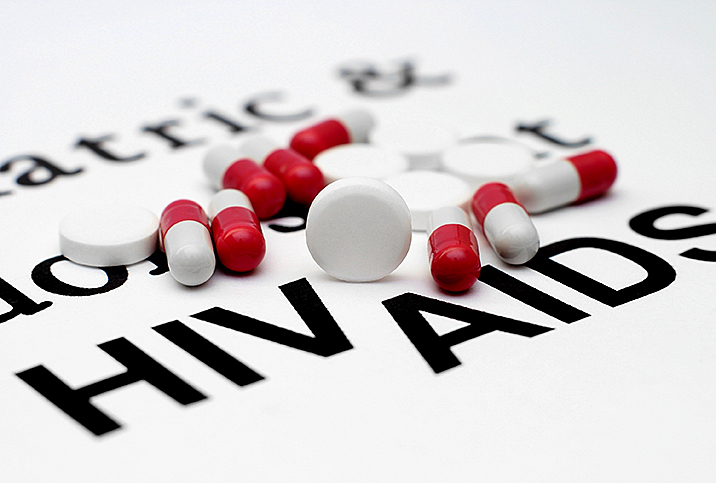HIV/AIDS: Living and Loving Your Best Life

Living with HIV (human immunodeficiency virus) means you will undoubtedly need to make several lifestyle alterations to help maintain your health and protect the health of others. While there will be challenges, you can live a long and productive life.
According to HIV.gov, statistics from 2021 indicated that about 28.7 million people with HIV (75 percent) were accessing antiretroviral therapy (ART) globally. In the United States, of the estimated 1.2 million people with HIV in 2019, 56.8 percent were virally suppressed or had undetectable levels. Achieving an undetectable viral load through treatment means you can't transmit the virus to others, and it is the best thing for your health.
Let's talk to the experts about living your best life with HIV, including dating and looking after your mental health. We'll also take a look at some useful online resources that provide essential education and important information to keep you updated.
Living with HIV/AIDS
The most critical component of living with HIV is that it's no longer a death sentence, said Michael Horberg, M.D., M.A.S., director of HIV/AIDS and STD at the Kaiser Permanente and Care Management Institute in Washington, D.C.
"You can live a very long, productive life, but you must take your medication and work closely with your provider," he added.
Horberg noted that if a person with HIV has been taking their meds for some time, their viral load is under control and they have a good CD4 cell count especially counts of more than 500 cells per microliter then they should be able to live very well. CD4 cells, also known as CD4+ T cells, are white blood cells that fight infection.
However, he did highlight some lifestyle "musts" to remain healthy while living with HIV:
- Avoid recreational drugs
- Avoid smoking
- Eat a healthy, balanced diet
- Get fully vaccinated, including for pneumonia, flu, COVID-19 and more
- Get regular exercise
- Get screened for depression and take care of your mental health
- Get screened for other sexually transmitted infections (STIs) and sexually transmitted diseases (STDs) as they can be asymptomatic
- Drink alcohol in moderation
Dating with HIV/AIDS and talking to your partner
Dating while managing the virus can feel daunting. However, Horberg explained the most crucial aspect of having a successful relationship while living with HIV is honesty.
"If you're not going to be honest with your partner, you're likely setting yourself up for more hurt later on," he advised.
A lot of people worry about when and how to tell a prospective partner about their diagnosis. If they're accepting and understanding, then the time and place of the conversation don't have to be perfect. What matters is that you are honest and open.
And that's scary to do.
Could you get rejected? Of course. Some people don't understand that prevention and sexual health are two-way streets. Both sides have to take responsibility and extra care, Horberg explained. He also stressed that it's important to take pride in yourself.
"This is not 20 or 30 years ago," he said. "It's so very critical that you have self-pride, because you should."
Some people find it easier to date another person with HIV as they already understand what it means to live with the virus. There are now dating sites set up expressly to help people with HIV and other STIs date without worrying about discrimination. Here are a few:
- HIV Dating Service. Focuses on connecting singles who are living with HIV.
- Meet Positives. This site is for people living with STDs to connect to other people who have the same diagnosis.
- Positive Singles. This site claims to be the world's largest confidential herpes and STD dating community.
- POZ Personals. This dating site is part of the wider online POZ brand, designed especially for people living with HIV.
The psychological impact of HIV/AIDS
HIV is a lifelong condition, and for people diagnosed with HIV, depression is twice as common as in people without HIV.
Of course, being diagnosed with HIV can be worrying and may increase feelings of anxiety or depression. There can be tough decisions to make as you navigate relationships. Problems with self-image and self-confidence are also common.
On top of all that, you may be faced with additional stressors such as:
- Being marginalized by mainstream society
- Dealing with the stigma still attached to HIV in many communities
- Facing discrimination
- Facing harassment or abuse
- Having difficulty accessing the same opportunities as other people
Counseling can be a positive support tool for many people with HIV. A counselor can help you understand your feelings and underlying issues, and help you manage your way through long-term lifestyle changes.
There are many different types of therapy, including cognitive behavioral therapy (CBT), which can be beneficial as you're identifying negative thought patterns and making behavioral changes. For some people, antidepressant medication may be helpful, and your healthcare provider can advise you on forms of medication that will work alongside your HIV treatment regimen.
Surround yourself with people who support you. Find people you can talk to about HIV and feel comfortable sharing your worries and concerns. If you don't feel you can talk to family or friends, there are many support groups for HIV-positive people, including ones where you can maintain a degree of anonymity.
Living well and staying healthy with HIV means taking care of your mental health, too. No matter how well you manage your HIV, your emotional well-being may be affected. If you're struggling with your mental health, reach out to your HIV healthcare provider for advice and support.
Recommended resources
In the medical world, you often hear the phrase, "You're not alone." And while it sounds cliché, for a condition like HIV, with as much stigma and misinformation surrounding it, spending time in the company of others who are experiencing the same circumstance as you can be uplifting and positive.
Of course, there's nothing better than being face to face, but there are many online resources where you can immerse yourself in information, share experiences and just chat.
Here are some online locations that make good stepping stones to the resources available:
- HealthHIV. This is a national nonprofit group working with healthcare organizations, communities and providers to advance effective HIV and hepatitis C virus (HCV) prevention, care and support through education and training, technical assistance and capacity building.
- Kaiser Family Foundation. This is a nonprofit organization that develops research and communications programs focusing on significant healthcare issues such as HIV/AIDS.
- HIV.gov. This official U.S. government website is managed by the Department of Health & Human Services and packed full of resources. You can find a search option on the site to locate local HIV testing, services and PrEP.
- POZ. This is an award-winning print and online brand for people living with and affected by HIV/AIDS.
- TheBodyPro. This website is targeted toward informing and supporting the HIV workforce.
Editor's note: This report is part 4 of a five-piece introduction and continuing update focusing on HIV/AIDS. Check out the other parts of this series:
- HIV/AIDS: The Basics You Need to Know
- HIV/AIDS: Signs, Symptoms and Diagnosis
- HIV/AIDS: Treatment and Your Sexual Health
- HIV/AIDS: Living and Loving Your Best Life
- HIV/AIDS: Back to the Future


















